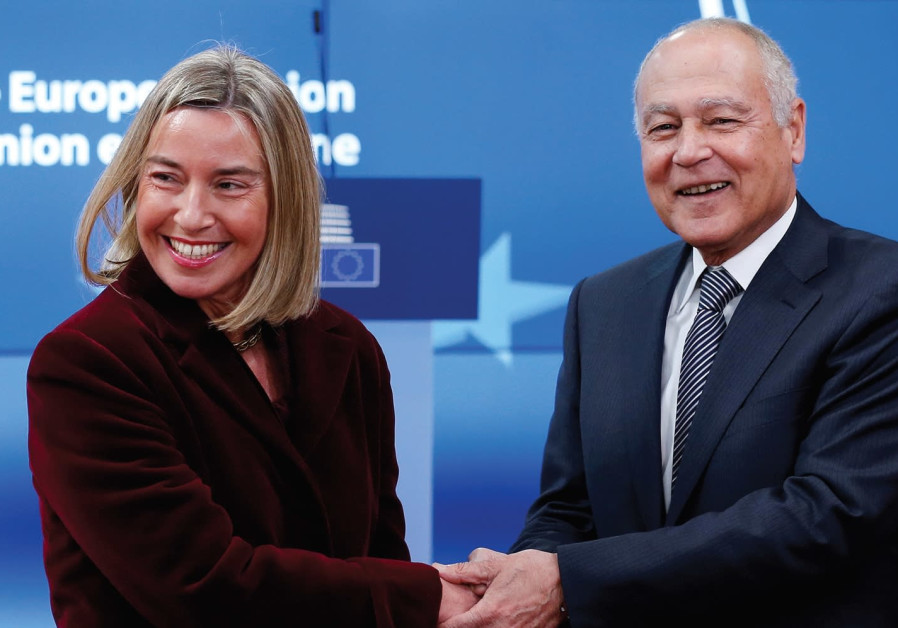 Żydowski Instytut Historyczny – Newsletter 12 lipca – 19 lipca 2018
Żydowski Instytut Historyczny – Newsletter 12 lipca – 19 lipca 2018
ŻIH
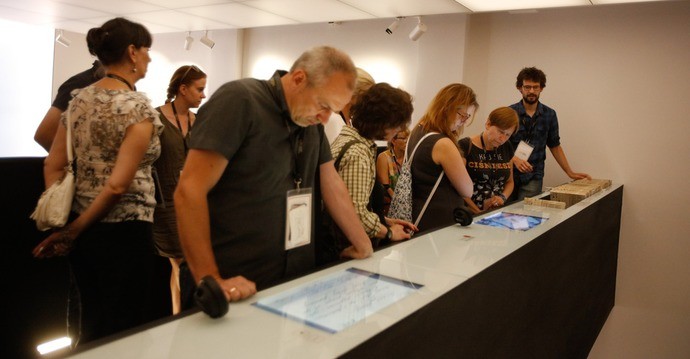 |
|
RELACJA Z AKADEMII LETNIEJ ŻIH
|
Nauczyciele, edukatorzy i lokalni aktywiści pojawili się w ubiegłym
tygodniu w Żydowskim Instytucje Historycznym na kolejnym seminarium
z cyklu „Akademia Letnia”. W czasie trzech dni zajęć zostało poruszonych wiele
zagadnień z zakresu nauczania o Zagładzie, a uczestnicy mieli wyjątkową
okazję do uczestnictwa w interesujących warsztatach, spacerach
edukacyjnych, zwiedzaniu wystaw Żydowskiego Instytutu Historycznego,
a także wizyty studyjnej w Muzeum Walki i Męczeństwa w Treblince.
Szkolenie było zorganizowane i poprowadzone przez
Zespół Edukacji ŻIH: Agnieszkę Kajczyk, Olgę Szymańską i
dra Bartosza Borysa.
|
|
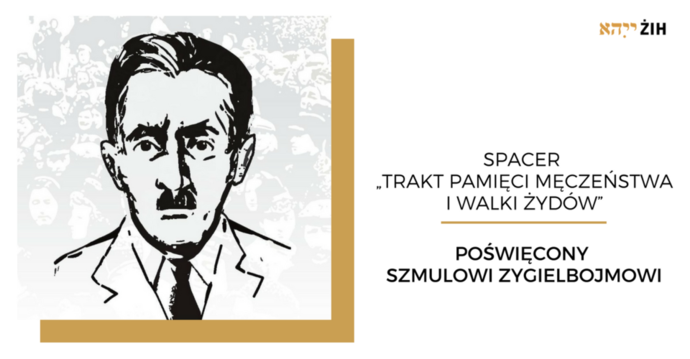 |
|
SPACER ZAPOWIADAJĄCY MARSZ PAMIĘCI 22 LIPCA 12 lipca zapraszamy na spacer zapowiadający Marsz Pamięci dedykowany Spacer rozpoczniemy przy Pomniku Bohaterów Getta – pomniku znanym na całym świecie, powstałym w hołdzie wszystkim mieszkańcom getta. Stamtąd przejdziemy traktem upamiętniającym ostatnią drogę mieszkańców getta na Umschlagplatz, skąd niemal 300 tys. z nich wywieziono latem 1942 r. do obozu zagłady w Treblince. Miejsce zbiórki: przed pomnikiem Bohaterów Getta, ul. Zamenhofa/ al. Sendlerowej. Na wydarzenie obowiązują zapisy, liczba miejsc jest ograniczona. Osoby zainteresowane prosimy o przesłanie maila na adres: rezerwacja@jhi.pl, w tytule wiadomości prosimy wpisać: Udział w spacerze jest bezpłatny. |
|
|
 |
|
RABBI KALONYMUS KALMAN SHAPIRA’S „Sermons from the Years of Rage, 1939–1942”AND THEOLOGY OF SUFFERING 13 lipca o godzinie 11:00 zapraszamy na gościnny wykład dr. Daniela Reisera – dyrektora Departamentu Myśli Żydowskiej w Herzog Academic College oraz starszym wykładowcą na Wydziale Studiów Religijnych i Duchowych w Zefat Academic College, specjalistą w odszyfrowywaniu hebrajskich i jidyszowych manuskryptów.
Wykład odbędzie się w języku angielskim w sali w Błękitnym Wieżowcu (wejście od ul. Tłomackie). |
|
|
 |
|
CYKL LETNICH SPACERÓW “ODKRYJ ŻYDOWSKĄ WARSZAWĘ” 15 LIPCA Zapraszamy na pierwszy z cyklu letnich spacerów ŻIH – „Niezatarte ślady getta Warszawy” Spacer przybliży uczestnikom historię warszawskiego getta, codzienne problemy jego mieszkańców i tragiczny finał społeczności warszawskich Żydów. Zobaczymy pozostałe jeszcze ulice, kamienice i place, a wyobrazimy sobie i obejrzymy na zdjęciach to, czego zobaczyć już nie można. Uczestnicy spaceru dowiedzą się, jak w getcie szmuglowano żywność, jaką sztukę można było obejrzeć w Teatrze Femina i dlaczego w dzielnicy żydowskiej znalazły się trzy kościoły rzymsko-katolickie. Miejsce zbiórki: przed budynkiem Żydowskiego Instytutu Historycznego, ul. Tłomackie 3/5. Na spacer obowiązują zapisy, liczba miejsc jest ograniczona. Osoby zainteresowane prosimy o przesłanie maila na adres: rezerwacja@jhi.pl, w tytule wiadomości prosimy wpisać tytuł spaceru: Niezatarte ślady getta Warszawy. Udział w spacerze jest bezpłatny. |
|
|
 |
|
MARSZ PAMIĘCI 22 LIPCA DEDYKOWANY SZMULOWI ZYGIELBOJMOWI W tegorocznym Marszu Pamięci 22 lipca uczcimy pamięć Szmula Zygielbojma, Marsz wyruszy 22 lipca br. o godz. 17:00 spod pomnika Umschlagplatz i przemierzy symboliczną trasę ulicami Stawki, Dubois, Zamenhofa, Anielewicza, Andersa, aż do al. Solidarności |
|
|
 |
|
WYSTAWA STAŁA „CZEGO NIE MOGLIŚMY WYKRZYCZEĆ ŚWIATU”
Na wystawie po raz pierwszy udostępniamy dokumenty Podziemnego Archiwum Getta Warszawy. Wystawa jest jednym z kluczowych elementów programu Oneg Szabat. |
Oprowadzanie po wystawie odbywa się dwa razy dziennie od poniedziałku do piątku: o godz. 11:00 po angielsku i o godz. 14:00 po polsku.
|
|
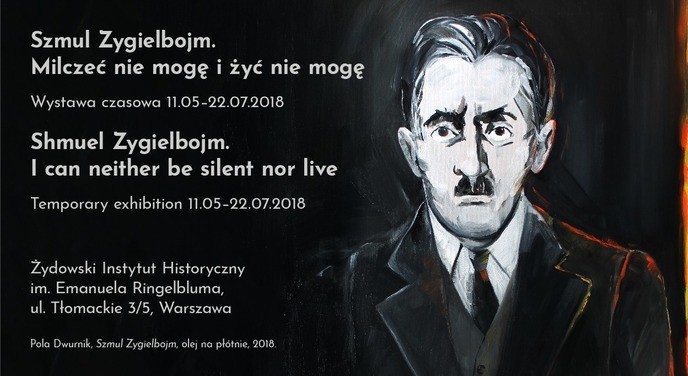 |
|
“SZMUL ZYGIELBOJM. MILCZEĆ NIE MOGĘ I ŻYĆ NIE MOGĘ”
Wystawa czasowa – od 11 maja do 22 lipca 2018 |
Szmul Zygielbojm (1895 – 1943) był działaczem politycznym związanym z socjalistyczną partią Bund; od lutego 1942 r. pełnił funkcję członka Rady Narodowej przy rządzie Rzeczypospolitej Polskiej na uchodźstwie w Londynie. Jako członek Rady informował świat o tragicznym losie polskich Żydów pod niemiecką okupacją.
Wobec klęski powstania w getcie warszawskim, a przede wszystkim na znak protestu przeciwko obojętności świata wobec zagłady Żydów, 12 maja 1943 r. popełnił samobójstwo.
Kuratorka wystawy | Zuzanna Benesz-Goldfinger
Wystawa organizowana jest z okazji 75. rocznicy samobójczej śmierci Szmula Zygielbojma i wybuchu powstania w getcie warszawskim.
|
|
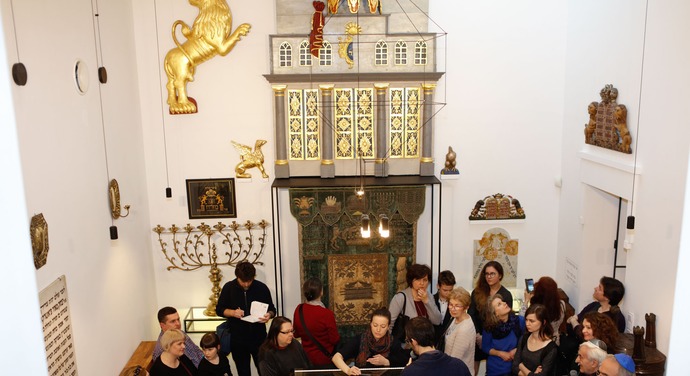 |
|
BEJT TFILA – DOM MODLITWY
Ekspozycja przybliża temat synagogi, jej najważniejszych obiektów i funkcji osób, m.in rabina, kantora i szamesa. Skierowana jest do wszystkich – zwłaszcza tych, którzy nie byli wcześniej w synagodze lub chcieliby uzupełnić wiedzę na temat tego miejsca.Kurator wystawy | Michał Krasicki Ekspozycja jest czynna w godzinach otwarcia wystawy stałej:
Poniedziałek – Piątek: 09:00 – 18:00 Niedziela: 10:00 – 18:00 |
|
|
|
BADANIE OPINII NA TEMAT WYSTAWY STAŁEJ W ŻIH Zapraszamy do wypełnienia naszej ankiety internetowej!
Celem badania jest poznanie Państwa opinii na temat wystawy stałej „Czego mogliśmy wykrzyczeć światu” oraz wystawy czasowej w Żydowskim Instytucie Historycznym im. Emanuela Ringelbluma.
Odpowiedź na nasze pytania zajmie Państwu ok. 5 minut. Ankieta jest anonimowa.
|
|
|
|
POLITYKA PRYWATNOŚCI ŻYDOWSKIEGO INSTYTUTU HISTORYCZNEGO
Prosimy o zapoznanie się z polityką prywatności ŻIH dotyczącą ochrony danych osobowych.
|
|
|
|
GODZINY OTWARCIA I CENY BILETÓW WYSTAWA STAŁA I CZASOWA
Poniedziałek – Piątek: 09:00 – 18:00
Niedziela: 10:00 – 18:00 Ostatnie wejście o godzinie 17:00.
CZYTELNIA w okresie letnim
Poniedziałek – Czwartek: 09.00 – 17.00
Piątek: 09.00 – 15.00 W lipcu Księgarnia na Tłomackiem będzie czynna od poniedziałku do piątku w godzinach 10.00 – 18.00. CENY BILETÓW Bilet ulgowy – 7zł (indywidualny), 6 zł (grupowy)
Bilet z przewodnikiem PL – 20zł
Bilet z przewodnikiem ANG – 30zł
Zwiedzanie wystawy czasowej jest bezpłatne. W niedzielę zwiedzanie wystawy stałej jest bezpłatne .Jako że limit osób odwiedzających wystawę na daną godzinę to tylko 35 osób, prosimy o rezerwowanie także darmowych biletów na stronie www.tickets.jhi.pl. Bilet otrzymają Państwo drogą elektroniczną! |
|
|
|
|
Zawartość publikowanych artykułów i materiałów nie reprezentuje poglądów ani opinii Reunion’68,
ani też webmastera Blogu Reunion’68, chyba ze jest to wyraźnie zaznaczone.
Twoje uwagi, linki, własne artykuły lub wiadomości prześlij na adres:
webmaster@reunion68.com


